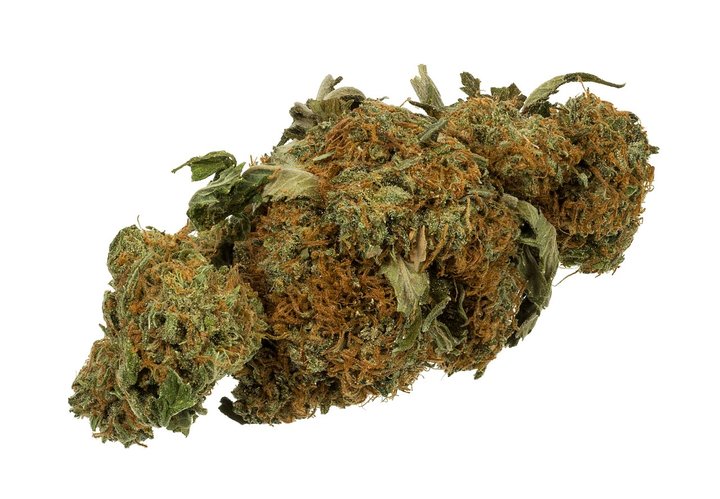“The black tide of psychosis and the red tide of violence are
rising together on a green wave, slow and steady and certain.”
Not to mention purple, as in prose. (The “green” is, of course, weed.) Not the sort of writing you might expect from a former New York Times reporter, perhaps. But it’s pretty typical of the propagandist screed Alex Berenson directs against those who would legalize cannabis in his recent book Tell Your Children. (The title is a wink at the 1936 anti-marijuana movie Reefer Madness, which was originally called Tell Your Children.)

Evan-Amos, public domain.
Happily, some saner voices have called out Berenson’s “Cannabis causes psychosis. Psychosis causes violence” mantra. A week ago, 75 scholars and clinicians (from New York University, Harvard Medical School, Columbia University, plus addiction medicine doctors, psychologists, psychiatrists and social workers) signed an open letter disputing Berenson’s claims. In it, they “urge policymakers and the public to rely on scientific evidence, not flawed pop science and ideological polemics, in formulating their opinions about marijuana legalization.”
Wouldn’t an ex-NYT newsman be the first in line to insist that correlation doesn’t equate to causation? (I recently discussed this here, and was rightly called out in the comments for implying that the smoking-lung cancer connection was flat-out proven. Correlation, yes; causation, only probably.)
No question, in a slew of studies, marijuana use and psychosis are linked: heavy weed smokers are more prone to psychosis. But so what? Here’s how reporter German Lopez, writing in Vox, succinctly disposed of the “causation” line: “Marijuana may not cause psychosis; something else may cause both psychosis and pot use. Or the causation could go the other way: psychotic disorders may lead to marijuana use, perhaps in an attempt to self-medicate.” (You can apply the same reasoning to tobacco use. Several studies, including one involving nearly two million Swedes, show a connection between tobacco and schizophrenia: the more you smoke, the more you’re likely to be psychotic. Or vice versa.)
Some of the scientists whose studies Berenson hijacked to prop up his argument are fighting back. Cannabis researcher Ziva Cooper, Director of UCLA’s Cannabis Research Initiative, was a co-author of the report which Berenson cited as evidence that THC causes psychosis. (It was published by the National Academies of Sciences, Engineering, and Medicine two years ago.) She tweeted, “…we did NOT conclude that cannabis causes schizophrenia,” adding that Berenson conveniently omitted the association she and her co-authors found “between cannabis use and IMPROVED cognitive outcomes in individuals with psychotic disorders…”
As anyone who hasn’t been living on a desert island for the last 50 years knows, the issue is far from theoretical. According to the ACLU, marijuana arrests account for over half of all drug arrests in the United States. “Of the 8.2 million marijuana arrests between 2001 and 2010, 88% were for simply having marijuana.” With blacks nearly four times more likely than whites to be arrested.
A sentence in open letter referred to above sums up the whole issue, I believe: “Weighed against the harms of prohibition, including the criminalization of millions of people, overwhelmingly black and brown, and the devastating collateral consequences of criminal justice system involvement, legalization is the less harmful approach.”
Perhaps Berenson would like a return to prohibition?
CLICK TO MANAGE